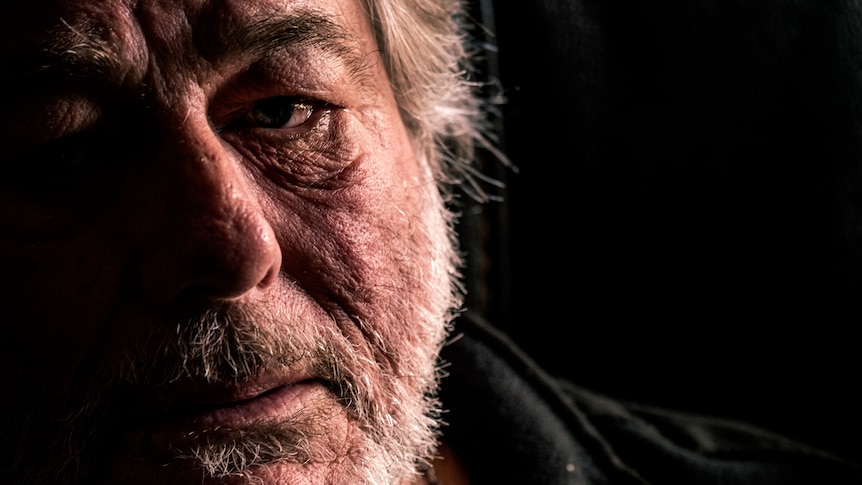The 360-kilometre drive Paul Klotz has to make to get medical help for his chronic pain is “like torture”, according to the chronic pain sufferer.
Key points:
- A new survey shows 53 per cent of regional Australians suffering chronic pain are not getting the medical help they need
- 70 per cent of people with chronic pain are regularly going without food
- Chronic Pain Australia says sufferers are turning to self-medication due to a lack of medical help
He has issues with his back, which makes sitting in a car extremely difficult.
But it is just one part of his long and complicated medical history that means he regularly needs to travel from his home in Bundaberg, in Queensland, to get help.
He had a heart attack 20 years ago, a stroke seven years ago, he has epilepsy functional neurological disorder, and he had a bit of his bowel removed just before Christmas.
But getting treated for his chronic pain has been a long, slow and painful journey, as he said there were no appropriate medical services in his home town.
“To be honest, and to be blunt, they’re non-existent,” he said.
“The GPs do the best they can, but for cardiologists, oncologists, dermatologists, neurosurgeons, and neurologists, I have to get to Brisbane to see those.
“The expectation for me to sit in the car for six hours’ drive for a short appointment down there, and then have to face six hours coming back, it’s torture, pure torture.”
The ever-increasing cost of fuel and the regular need for accommodation is also a huge financial ask to cover for the disability pensioner.
Chronic pain sufferers going without food, medical treatment
Mr Klotz’s willingness to travel from regional Australia to a big city to seek medical help puts him in the minority, according to a new survey from the not-for-profit group Chronic Pain Australia.
President Fiona Hodson said the organisation’s annual survey showed that 53 per cent of chronic pain sufferers in regional Australia were not getting the medical help they needed due to their location.
“It is quite alarming that there are that many people who are unable to access these services,” she said.
Ms Hodson said the lack of services often led people to self-medicate, and the recent survey of 1,500 chronic pain sufferers showed 48 per cent used alcohol to self-medicate.
That figure was 28 per cent for cigarettes and 26 per cent for non-medically prescribed cannabis.
Ms Hodson said the survey also showed that 70 per cent of chronic pain sufferers had gone without food in order to continue treating their condition, and 55 per cent said they had not been able to see a specialist due to the cost.
Having private health insurance did not seem to help either, as 65 per cent of respondents with policies said they were still going without food and fuel to get treatment.
“Health services and treatment options, which are inaccessible due to remoteness and also unaffordable for many, can force people living with chronic pain to seek out unsafe ways to manage and cope with their pain,” Ms Hodson said.
“Many don’t feel like they have a choice.”
The Rural Doctors Association of Australia said more money was needed to attract doctors to regional Australia.
President Megan Belot urged the federal government to bring back a Medicare rebate for GP-facilitated specialist appointments, saying it was lost in a change from emergency COVID measures.
“In rural settings, the local doctor is usually the ongoing care provider, so we need these GP-facilitated consultations to help the local team manage the patient’s condition in accordance with the advice from the consultant specialist,” Dr Belot said.
.
